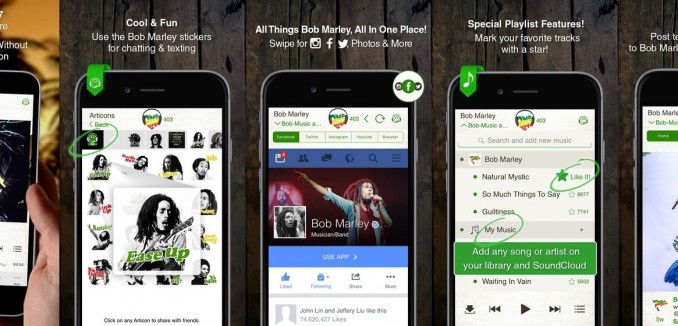An Israeli mobile platform is helping artists find a new way to profit from their work and share it with fans.
Sephi Shapira began developing EscapeX after noticing that artists were posting songs and videos on sites like YouTube and Facebook, generating billions for the media companies through passive engagement — but making no money for themselves unless somebody makes a purchase. He realized that nobody was applying the “engagement economy” model to the struggling music industry. So he gathered a team of mobile and entertainment industry veterans and founded EscapeX in November 2014.
Musicians, as well as actors, comedians and other creative artists, can now use the platform to create and run their branded mobile apps for free, organize their content, and make it universally available without need for Internet access. Engagement with the app is the currency that drives the profit engine, generating revenue via advertising, e-commerce and in-app purchases. The longer fans stay in the app, the more freebies they earn, such as wallpapers and ringtones.
“The artists get it right away because they understand well how much effort they’re putting into social media and they’re not getting compensated for it,” says Shapira.
Since launching in September last year, EscapeX has signed 10 of the top 100 artists in the world — each with an average 50 million followers — and eight of the top 10 Latin American artists, such as Ricky Martin and Enrique Iglesias. An eight-digit Series A funding round is in the works.
So far, some 10 million users have downloaded one of the EscapeX artists’ applications.
“Global reach is one of the main reasons why I’m working with EscapeX,” said recording artist Akon, who counts 72 million social followers. “My content is consumed across the world and it’s refreshing to know that now it can be monetized and can reach anybody, anywhere.”
Monetizing music in the digital era is a huge conundrum for artists and record labels.
Shapira points out that there are 5.5 billion smartphone users in the world, while only about 50 million people subscribe to streaming music services such as Apple Music and Spotify, paying a flat rate no matter how often or how long they stay engaged.
“You’re not monetizing 99 percent of the user base, so it’s not surprising you’re not making money,” he says.
Shapira met with major artists to explain EscapeX’s alternative approach.
“The artists are being squeezed by the labels and the distribution and social network platforms and basically not getting paid by anyone,” he says. “Instead of using your brand equity to bring people to our service and not pay you, we’re saying you can have a party at your house and we’re bringing the snacks. It’s your app. You own the technology and keep your brand equity.”
The idea caught on, and today most of EscapeX’s growth is via word of mouth. About 100 artists already participate, including big names such as the late reggae star Bob Marley, whose tunes could bring as many as 100 million fans to the EscapeX app created by the Marley family.
“It’s the first time someone is giving them a tool to monetize their own fan base instead of asking them to bring their content and users to someone else’s platform. That value proposition really resonated with them even though we had no track record,” says Shapira.
He does have a track record of his own. Shapira’s first software company, Interchan, was sold to a Chinese company in 2011. His second, the MassiveImpact mobile ad network, is still going strong. The graduate of Ben-Gurion University of the Negev also serves on the board of Aharai! (Follow Me!), a nonprofit social educational organization that develops young leadership in disadvantaged areas of Israel.
About half of EscapeX’s six business units – and half its 57 employees — are based in Tel Aviv and the rest in New York.
“EscapeX is the only place in the world today you can legally download, not stream, music into your phone for free. This is precedent-setting,” says Shapira.
(via Israel21c)
[Photo: Israel21c ]




